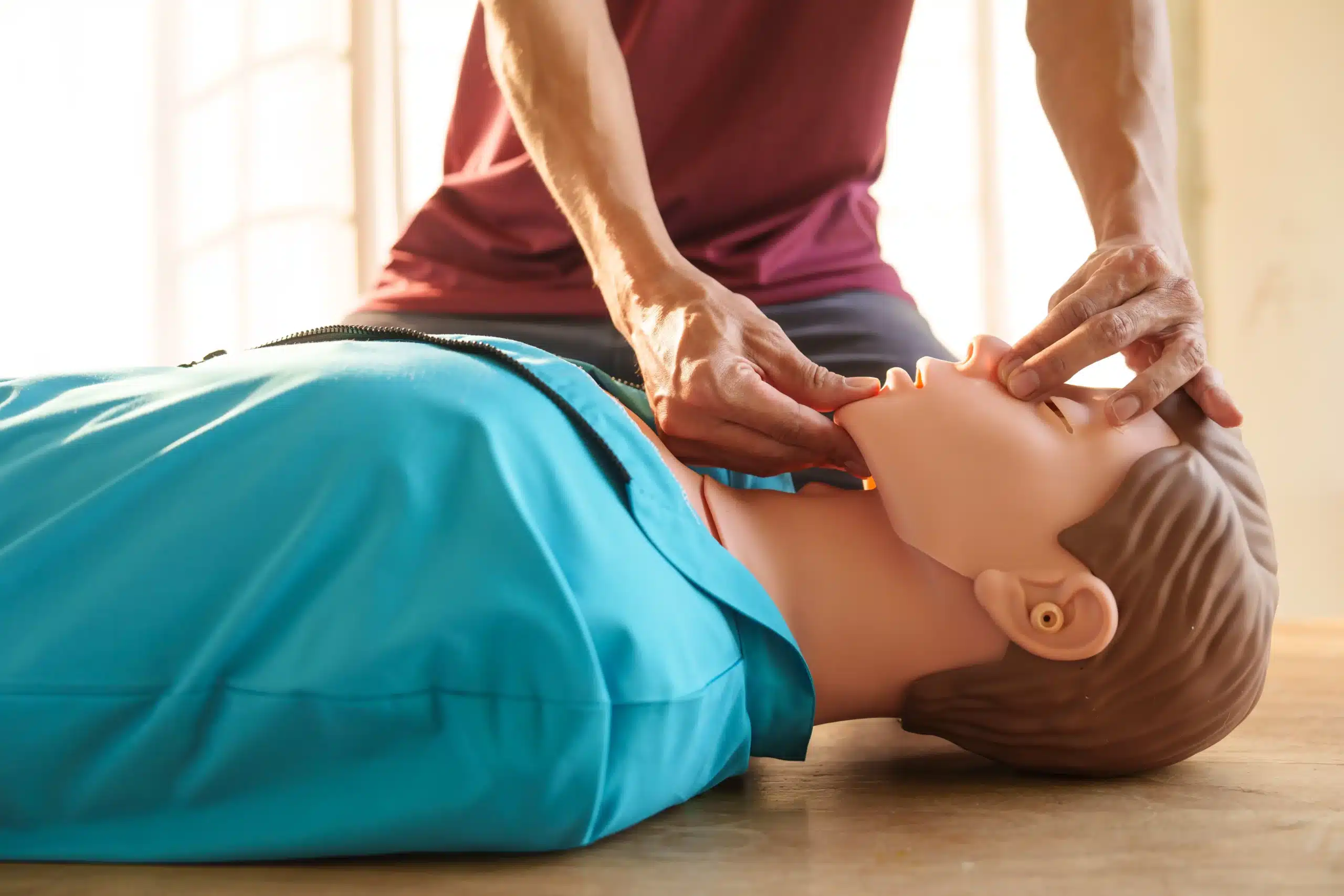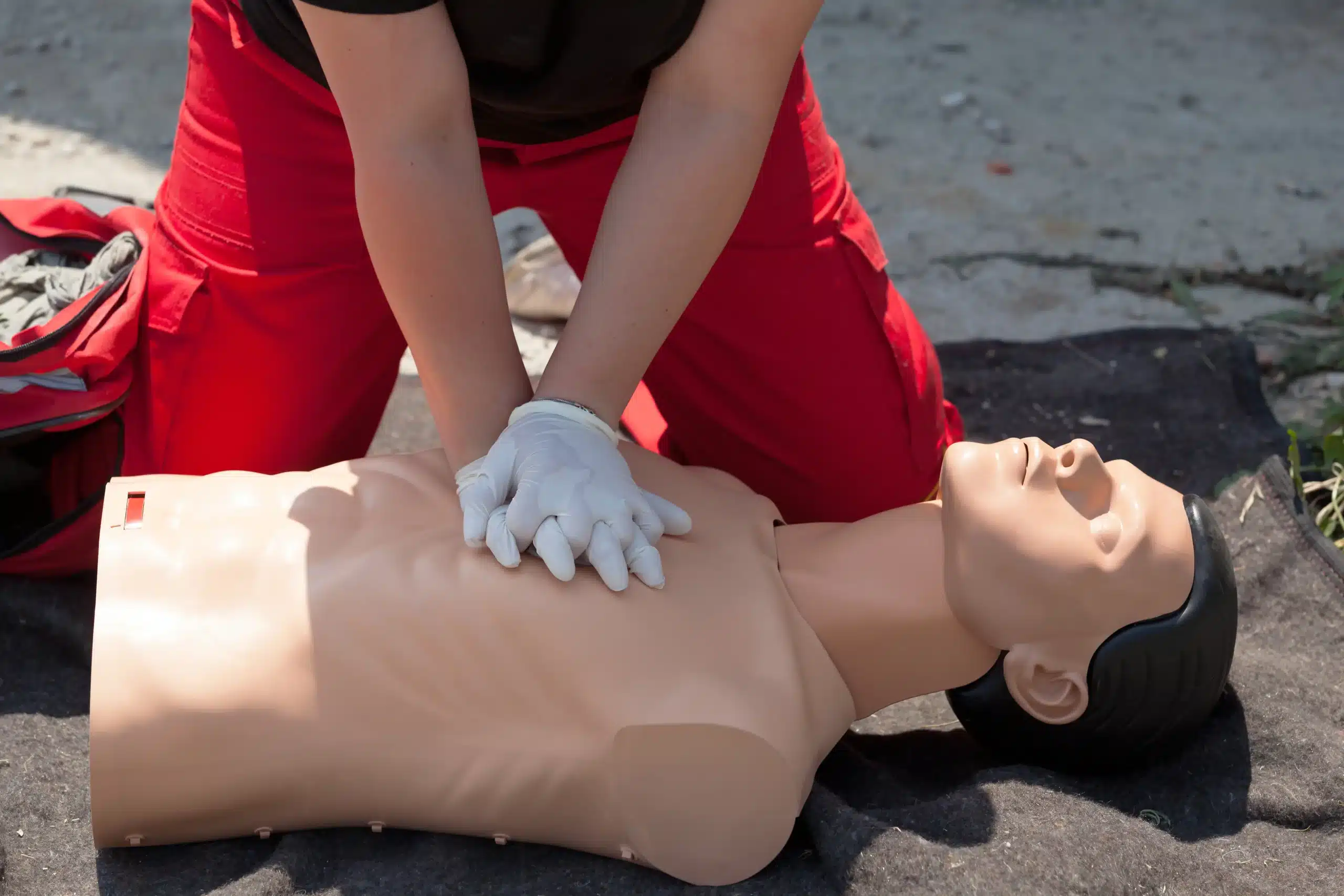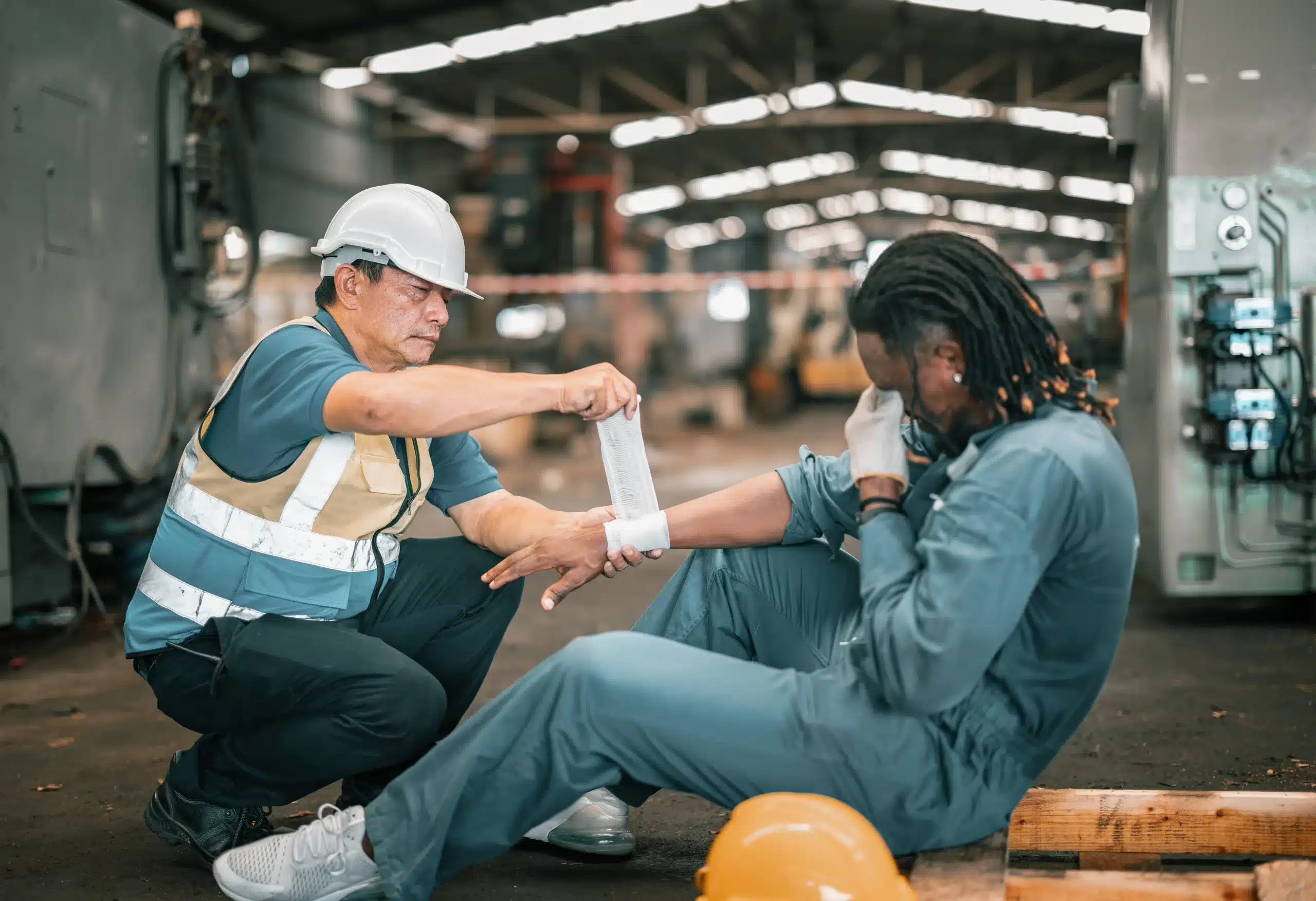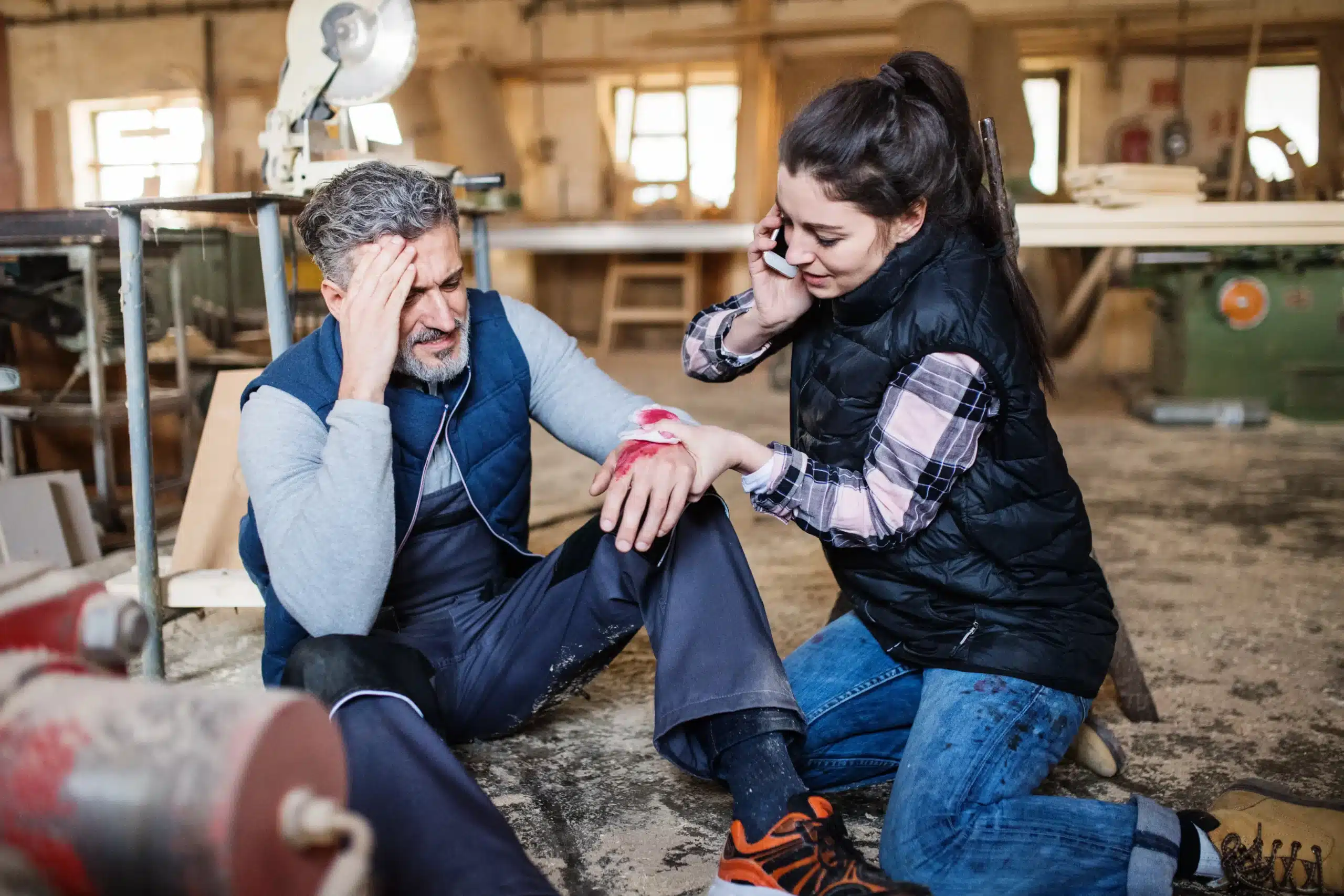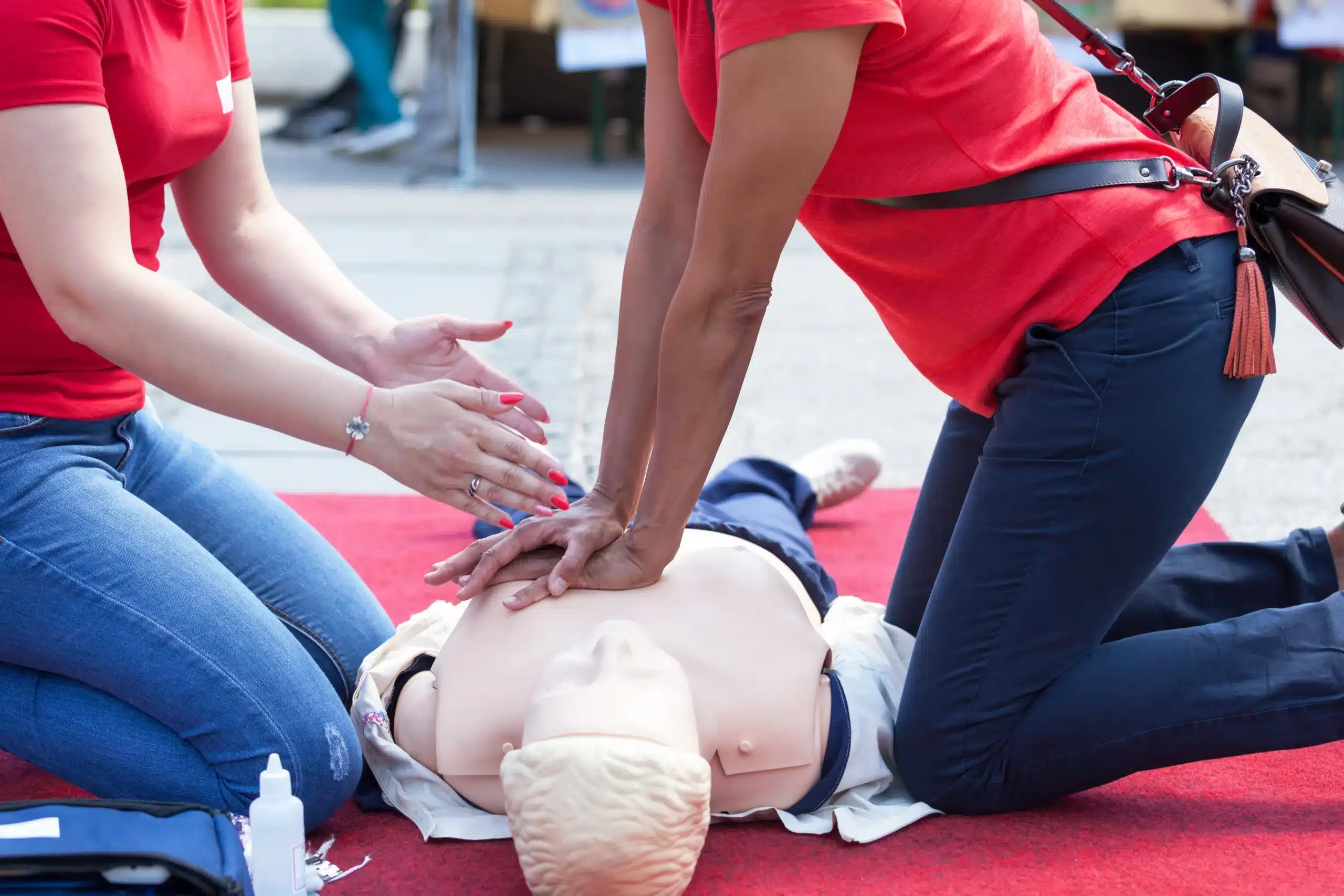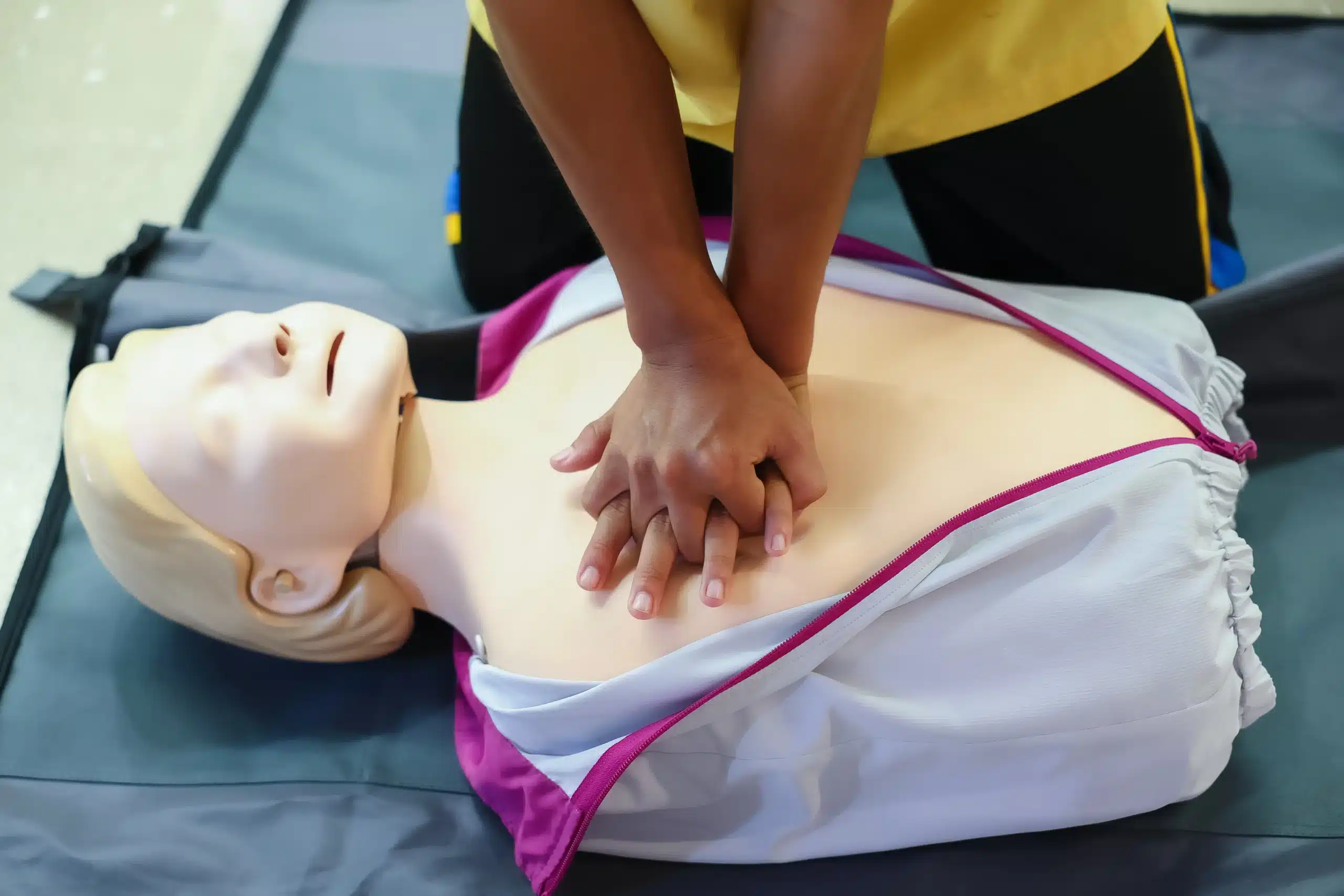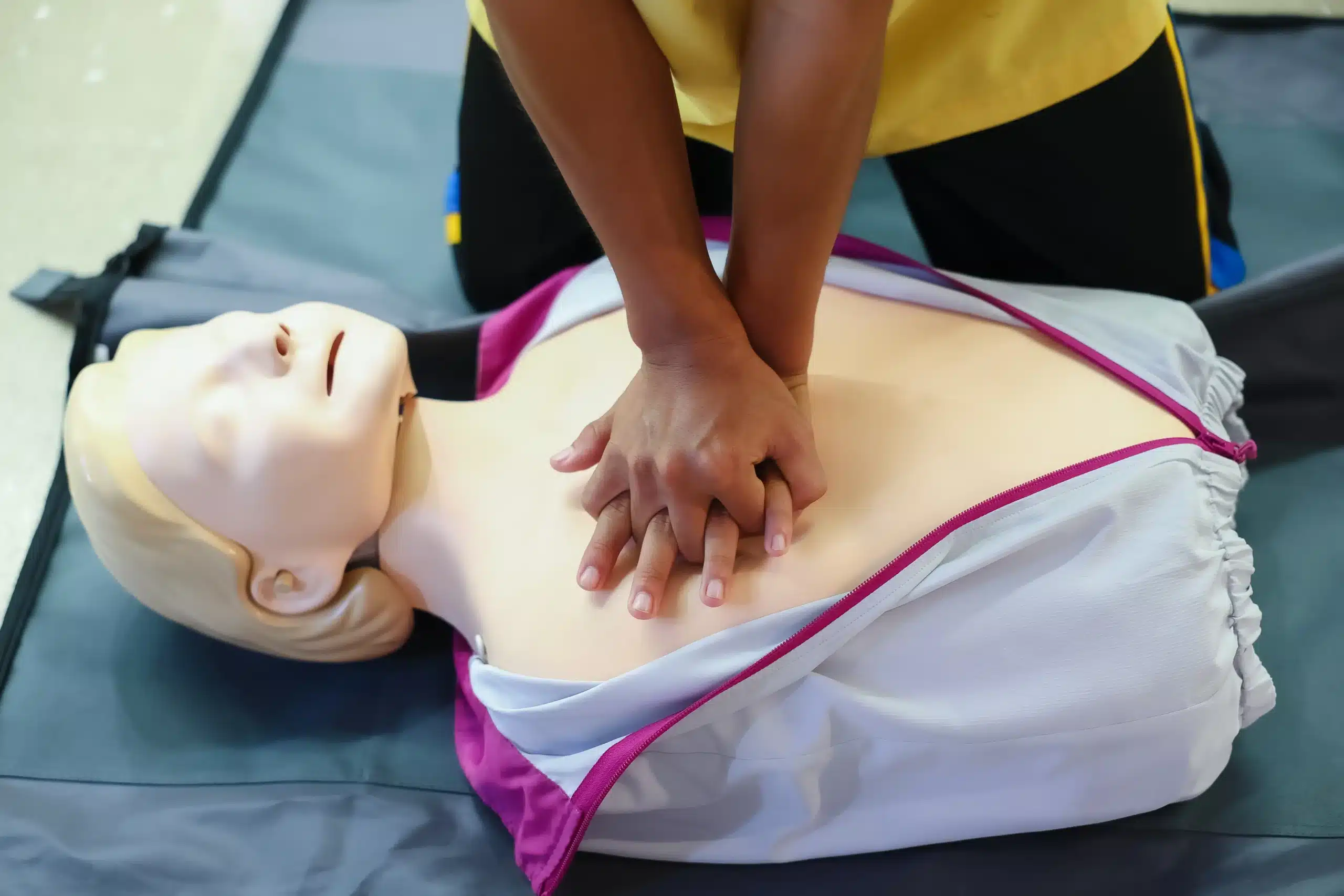Living in Sunnyvale means being part of a vibrant community that values the safety and well-being of its youngest members. But even in the safest environments, accidents happen. A child might fall from a swing set, experience an allergic reaction, or face a life-threatening event like cardiac arrest. Knowing pediatric CPR and first-aid in Sunnyvale empowers you to respond effectively in these critical situations. This comprehensive guide explores the essential skills you’ll learn in a pediatric CPR and first-aid class, where to find certified training in Sunnyvale, and how staying up-to-date can make all the difference. We’ll also discuss the unique aspects of pediatric CPR, debunk common misconceptions, and connect you with valuable resources within the Sunnyvale community.
Key Takeaways
- Pediatric CPR and first-aid equip you to handle emergencies: These skills empower you to confidently respond to various situations, providing immediate care when it matters most. Understanding the differences between adult and child CPR is crucial for effective intervention.
- Choosing the right class involves a few key considerations: Think about your learning style (in-person or online), your specific needs (basic or advanced training), and the importance of hands-on practice. Select a reputable provider with experienced, certified instructors.
- Maintaining your skills is an ongoing process: Regular practice, refresher courses, and staying updated on the latest guidelines ensure you’re always prepared and confident in your abilities. Remember to renew your certification every two years.
What is Pediatric CPR and First-Aid?
Pediatric first-aid and CPR training gives parents, caregivers, and anyone working with children the skills to handle emergencies. Knowing how to respond can make a real difference in a critical situation. A pediatric first-aid course covers essential skills like treating minor injuries, handling sudden illnesses, and managing allergic reactions. Adding CPR training equips you to respond to life-threatening situations like cardiac arrest or choking. These combined skills empower you to act quickly and confidently when a child’s health is at risk.
How It Differs from Adult CPR
While adult CPR provides a foundation in resuscitation techniques, pediatric CPR focuses on the specific needs of infants and children. Their smaller airways and different physiology require modified techniques for chest compressions, rescue breaths, and airway management. Pediatric Advanced Life Support (PALS) certification goes beyond basic CPR, offering specialized training for healthcare providers who regularly encounter pediatric emergencies. It delves deeper into the complexities of pediatric resuscitation, covering topics like advanced airway management, medication administration, and the management of pediatric cardiac arrhythmias.
Debunking Common Misconceptions
Many hesitate to learn CPR due to common misconceptions. Some worry about causing harm, while others are uneasy about rescue breaths. The truth is, even basic CPR can significantly improve a child’s chances of survival during a cardiac event. Quality CPR training addresses these concerns, teaching safe and effective techniques. It emphasizes the importance of taking any action, reassuring participants that doing something is always better than doing nothing. Learning CPR isn’t about becoming a medical expert; it’s about having the tools to potentially save a life. It’s an investment in the well-being of the children in your life, offering invaluable peace of mind. Consider a pediatric first-aid course to build your confidence and prepare you for emergencies.
Best Pediatric CPR and First-Aid Classes in Sunnyvale
Finding the right pediatric CPR and first-aid class is crucial for parents, caregivers, and anyone working with children. Here are some highly-regarded training providers in Sunnyvale:
Safety Training Seminars
Safety Training Seminars, an American Heart Association (AHA) Training Center, offers comprehensive CPR and safety training in San Jose and surrounding areas, including Sunnyvale. This ensures high-quality instruction and certification. Their BLS course covers pediatric CPR and is a great option for healthcare providers and anyone wanting a thorough understanding of life-saving techniques. Check their schedule for upcoming classes in nearby Willow Glen. They also offer a low price guarantee, making their training an affordable choice.
American Red Cross
The American Red Cross is a trusted name in emergency preparedness. They offer a variety of CPR and first-aid classes, including options specifically for parents and caregivers. Their focus on practical skills and real-life scenarios makes their training effective and engaging. Explore their pediatric-focused courses to learn essential skills for responding to emergencies involving children.
In Home CPR
For a convenient and personalized learning experience, consider In Home CPR. They bring the training to you, offering CPR and first-aid certification at your home or office in Sunnyvale. Their instructors are experienced medical professionals, ensuring you receive high-quality instruction in a comfortable setting.
Sunnyvale CPR Classes
Sunnyvale CPR Classes provides AHA-certified CPR and first-aid training designed for the Sunnyvale community. Their courses cover essential life-saving skills, including pediatric CPR, and equip participants to respond confidently in emergencies.
Adams Safety Training
Adams Safety Training offers pediatric CPR, AED, and first-aid training covering infants, children, and adults. Their comprehensive courses are a good option for those seeking a broader understanding of emergency response techniques. They serve the San Francisco Bay Area, making their classes accessible to Sunnyvale residents.
What to Expect in a Pediatric CPR Class
Learning pediatric CPR and first aid is empowering, equipping you with the skills to respond confidently during emergencies involving infants and children. This section outlines what you can typically expect in a pediatric CPR class, from the course content and hands-on practice to the certification process.
Course Content at a Glance
Pediatric first aid and CPR classes cover crucial topics for responding to emergencies. You’ll learn to recognize the signs of breathing and cardiac emergencies in infants and children, and how these differ from adults. The course covers how to perform CPR, including chest compressions and rescue breaths, tailored to young children. You’ll also learn essential first aid techniques for common childhood injuries and illnesses, such as choking, burns, and allergic reactions. Many courses, like those offered by Safety Training Seminars, align with American Heart Association guidelines. Preparing parents and caregivers for emergencies is a key focus, providing practical skills applicable to various situations. Taking a pediatric first aid course, whether online or in person, offers valuable knowledge for anyone responsible for a child’s safety.
Practice Your Skills
Hands-on practice is essential for effective CPR training. Expect to spend significant time practicing techniques on infant and child manikins. This repetitive practice builds muscle memory and solidifies the skills. Some courses incorporate real-life emergency scenarios to enhance learning and develop emotional resilience. This immersive training lets you apply your knowledge under pressure and gain confidence. Realistic CPR scenarios make the training more engaging and prepare you for real-world emergencies.
Get Certified
After successfully completing the course, including a written exam and skills demonstration, you’ll receive a certification in pediatric CPR and first aid, often valid for two years. This certification demonstrates your competency in these life-saving skills. The American Heart Association offers various certification courses, including the Heartsaver Pediatric First Aid CPR AED course, designed for childcare providers and anyone responsible for children’s safety. This certification provides peace of mind and can be a valuable asset for childcare professionals and those working with children. Learning CPR and first aid is an investment in the safety and well-being of the children in your life. Consider it a crucial parenting skill, offering significant value for your family’s safety.
Meet Your Instructors
When it comes to learning life-saving skills, the quality of instruction matters. At Safety Training Seminars, we pride ourselves on our team of highly qualified instructors dedicated to providing you with the best possible learning experience.
Instructor Qualifications
Our BLS courses in San Jose are taught by experienced professionals, including EMTs, Registered Nurses, and paramedics. As a woman-owned AHA Training Center, we maintain high standards for our instructors, ensuring they have both practical experience and in-depth knowledge to teach these critical skills effectively. Whether you choose a class at our San Jose location or opt for in-home training in Sunnyvale, Santa Clara, or nearby areas, you’re learning from the best.
Why Up-to-Date Certifications Matter
In healthcare, guidelines and best practices constantly evolve. That’s why up-to-date certifications are essential for all our instructors. Our courses follow the latest American Heart Association guidelines, and you’ll receive an official AHA certification card, valid for two years, upon completion. This demonstrates your commitment to high-quality care and ensures you’re equipped with the most current techniques. Whether you’re learning PALS to care for infants and children or renewing your CPR certification, staying current is crucial for safe and effective care. It’s an investment in your skills and the well-being of those you may need to help.
Pricing and Discounts
Knowing the cost of these essential skills and where to find potential savings is important. This section breaks down class costs in Sunnyvale and highlights how you can find discounts and promotions for pediatric CPR and first-aid training.
Class Costs in Sunnyvale
Safety Training Seminars offers American Heart Association (AHA) certified classes in CPR, BLS, ACLS, PALS, and First Aid. We’re committed to providing affordable training and maintain a low-price guarantee for all our courses. Check our website for the most up-to-date pricing on our BLS courses (we serve Sunnyvale residents, too!). Because we offer a variety of courses, pricing depends on the specific class you choose. For those also needing training for their workplace, we offer EMSA-approved courses as well.
Find Discounts and Promotions
We frequently offer discounts and run promotions on our courses. The best way to stay informed about these opportunities is to regularly visit our website. You can also sign up for our email list to receive direct notifications about upcoming discounts and special offers.
Low Price Guarantee
We believe everyone should have access to high-quality safety training. That’s why we offer a low-price guarantee. If you find a lower price for the same course with a comparable provider, we’ll match it. See our FAQ page for details. We’re confident that you won’t find better value for your safety training anywhere else in Santa Clara County.
Why Learn Pediatric CPR and First-Aid?
Knowing what to do in a medical emergency can make all the difference, especially when it comes to children. Pediatric CPR and First-Aid training empowers you to respond effectively and confidently in situations that demand immediate action. It’s about equipping yourself with the skills to potentially save a life.
Build Confidence in Emergencies
Emergencies involving children can be incredibly stressful. As parents, caregivers, or anyone working with kids, learning Pediatric CPR and First-Aid equips you to handle these situations with greater confidence. Instead of feeling helpless, you’ll have the skills to step in and provide immediate care. This training helps you stay calm and take charge when seconds count. Knowing you can make a difference brings a sense of control during a chaotic event. Pediatricians often recommend these courses for parents, highlighting the importance of being prepared.
Respond Effectively
A Pediatric First-Aid and CPR certification course gives you the tools to respond effectively to various childhood emergencies. From minor injuries to more serious situations like choking or cardiac arrest, you’ll learn how to assess the situation and provide appropriate care. This knowledge allows you to react quickly and efficiently, potentially minimizing harm and improving outcomes. For childcare providers, this training is especially valuable, ensuring they can create a safe and nurturing environment for the children in their care. Being prepared means you can act swiftly and decisively, giving the child the best possible chance of recovery.
Gain Peace of Mind
Learning CPR and First-Aid offers invaluable peace of mind. Knowing you have the skills to handle a medical emergency involving a child can alleviate anxiety and worry. This preparedness extends beyond your own family, empowering you to assist other children in your community. Understanding how to address common childhood emergencies, like choking, provides a sense of security and control. Early intervention in such situations can significantly increase a child’s chances of survival, making this training a worthwhile investment in the well-being of children around you. It’s not just about acquiring skills; it’s about gaining the confidence and assurance to act when it matters most.
Essential Skills You’ll Learn
Pediatric CPR and First-Aid classes equip you with the skills to handle emergencies involving infants and children. These courses cover a range of essential techniques, giving you the confidence to respond effectively in critical situations. Let’s explore some of the key skills you’ll gain.
Infant and Child CPR
Infant CPR is a specialized technique distinct from adult CPR, adapted to the unique physiology of babies. You’ll learn how to assess an infant’s condition, deliver chest compressions and rescue breaths, and manage their airway. These classes also cover CPR for children, adapting the techniques for older kids and pre-teens. Pediatricians stress the importance of parents learning these skills, empowering them to act quickly and potentially save their child’s life. Kidsville Pediatrics highlights this in their article on preparing for emergencies.
Choking Relief
Choking is a common hazard for young children. In your pediatric first-aid and CPR course, you’ll learn how to recognize the signs of choking and perform appropriate maneuvers for both infants and children. This includes back blows and chest thrusts for infants, and abdominal thrusts (the Heimlich maneuver) for children. Knowing these techniques can help dislodge an obstruction and restore breathing. The importance of choking relief as a vital skill is discussed further on the Kidsville Pediatrics blog.
Basic First Aid
Beyond CPR, these courses also cover essential first-aid skills. You’ll learn how to treat minor injuries like cuts, scrapes, and burns, and how to manage more serious situations like fractures and allergic reactions. ChildCareEd underscores the value of comprehensive pediatric first-aid training, enabling childcare providers to create a safer environment.
Spotting Emergencies
Recognizing the signs of a medical emergency is the first step towards effective intervention. You’ll learn how to identify situations requiring CPR, such as unresponsiveness, absence of breathing, and lack of a pulse. This quick assessment allows you to initiate CPR promptly and potentially improve outcomes. Kidsville Pediatrics offers more information on recognizing these critical signs.
Using AEDs on Children
Automated External Defibrillators (AEDs) can be life-saving in cases of sudden cardiac arrest. Your training will cover the safe and effective use of AEDs on children, including adjusting the device settings and applying the pads correctly. While CPR Classes Near Me focuses on the importance of CPR training for parents and teachers, the principles of preparedness and timely intervention apply equally to the use of AEDs.
Find the Right Class
Choosing the right Pediatric CPR and First Aid class is crucial for effective learning. With various options available, it’s important to consider your specific needs and preferences. This section will guide you through key factors to help you make the best decision.
Factors to Consider
When selecting a class, think about your goals. Are you a parent wanting basic life support skills for peace of mind? Are you a childcare provider needing professional certification? Or are you a healthcare professional requiring more advanced training?
A comprehensive course covering infant and child CPR, choking relief, and basic first aid is an excellent foundation. Look for courses aligned with recognized guidelines, such as those from the American Heart Association. Hands-on practice and feedback are essential for building confidence and competence, like the training offered at Safety Training Seminars. Consider the course length and schedule to ensure it fits your availability. Finally, choose reputable providers with experienced, certified instructors. ChildCareEd highlights the benefits of comprehensive training for childcare providers.
In-Person vs. Online
Deciding between in-person and online learning depends on your learning style and schedule. In-person classes offer hands-on practice with instructors, allowing immediate feedback and personalized guidance. This direct interaction can be invaluable for mastering these essential skills.
Online courses offer flexibility and convenience, allowing you to learn at your own pace and on your own schedule. Care Learning discusses the accessibility of online learning for essential first aid knowledge. However, online courses may require more self-discipline and may not offer the same level of hands-on practice. Consider your learning preferences and the importance of hands-on training when making your decision.
Specialized Courses
If you need more advanced training or specific certifications, explore specialized courses. These courses cater to specific needs and professions, such as childcare providers, healthcare professionals, or those seeking advanced life support skills.
The American Heart Association offers specialized courses like the Heartsaver® Pediatric First Aid CPR AED course, designed for childcare providers and others responsible for children’s safety. These courses often cover specific emergency scenarios and more advanced techniques. Consider your current skill level and professional requirements when choosing a specialized course.
Keep Your Skills Sharp
CPR and first-aid skills aren’t something you learn once and forget. Staying current with the latest guidelines and techniques is crucial for providing effective care in emergencies. This section covers how to maintain your skills and ensure you’re always prepared.
Renewal Requirements
Certification cards from the American Heart Association are valid for two years. This timeframe ensures that healthcare providers and community members refresh their knowledge and skills, keeping current with advancements in emergency care. Mark your calendar with your renewal date so you can stay compliant and confident in your abilities.
Refresher Courses
Don’t let your skills lapse. Refresher courses offer a streamlined way to renew your certifications. Programs like the RQI program provide a flexible and convenient option for maintaining your BLS, ACLS, and PALS qualifications. These courses often incorporate blended learning, combining online modules with in-person skills sessions. Check with your local training center, like Safety Training Seminars, for available refresher courses.
Practice Regularly
Consistent practice is key to retaining and refining your CPR skills. Create realistic scenarios to simulate the pressure and demands of a real emergency. Repetitive practice helps solidify the physical motions of chest compressions and rescue breaths, building muscle memory and improving your response time. Consider practicing with friends or family to make it a collaborative learning experience.
Tech Tools for Skill Retention
Technology offers innovative ways to supplement your training and keep your skills sharp. Mobile apps, such as the Infant CPR Anytime® app, provide interactive learning experiences and allow you to practice at your convenience. These tools can be valuable resources for reinforcing your knowledge and maintaining your confidence in responding to pediatric emergencies.
Sunnyvale Community Resources
Knowing where to find information and support within your community is key, especially when it comes to children’s safety. Sunnyvale offers several resources for parents, caregivers, and educators looking to learn or brush up on pediatric CPR and first aid.
Pediatrician Recommendations
Talk to your pediatrician. They’re a great resource and can offer personalized advice on infant and child CPR training. Many pediatricians actively encourage parents to learn these skills, understanding the vital role they play in emergency preparedness. They can often point you towards reputable training providers in the area and underscore why being prepared and knowledgeable in infant CPR can truly make a difference in a critical situation.
School and Daycare Partnerships
Many schools and daycare centers in Sunnyvale partner with organizations that offer pediatric first aid and CPR training. These partnerships often provide convenient on-site training opportunities for staff and sometimes even parents. This collaborative approach ensures that those spending the most time with children are equipped to handle emergencies effectively. Learn more about the benefits of such training for childcare providers.
Find More Information
Want to explore additional resources? The American Heart Association offers several programs and materials designed to help individuals learn and practice CPR. Their Infant CPR Anytime kit provides a convenient way to learn essential skills quickly. For more comprehensive training, consider the Heartsaver Pediatric First Aid CPR AED course, which covers responding to a range of pediatric emergencies.
Related Articles
- CPR Certification San Jose: Your Complete Guide – San Jose CPR Classes
- Safety Training Seminars San Jose: A Complete Guide – San Jose CPR Classes
- 12 Common CPR Myths Debunked – San Jose CPR Classes
- Explore Sunnyvale: A Guide to Living & Working – San Jose CPR Classes
- Why CPR is Crucial in Saving Lives
Frequently Asked Questions
Is pediatric CPR significantly different from adult CPR? Yes, there are important differences. A child’s smaller body and unique physiology require adjustments to the techniques used for chest compressions, rescue breaths, and airway management. Pediatric CPR courses address these differences, ensuring you learn the proper methods for infants and children.
What if I’m worried about hurting the child while performing CPR? High-quality CPR training addresses these concerns directly. Instructors teach safe and effective techniques, emphasizing that doing something is always better than doing nothing. The goal is to equip you with the skills to help, not to make you a medical expert. Remember, any action you take can significantly improve a child’s chances of survival.
What kind of certification will I receive after completing a pediatric CPR and first-aid course? You’ll receive a certification card, typically valid for two years, demonstrating your competency in these life-saving skills. Many courses align with American Heart Association guidelines, and some, like the Heartsaver Pediatric First Aid CPR AED course, are specifically designed for those working with children.
How much do pediatric CPR and first-aid classes typically cost in Sunnyvale? Costs vary depending on the provider and the specific course. Safety Training Seminars, for example, offers a low-price guarantee, ensuring competitive pricing for their courses. Check with various providers in your area for their pricing and any available discounts. It’s a good idea to compare options to find the best value for your needs.
How can I keep my CPR and first-aid skills current after completing a course? Regular practice is key. Consider refresher courses and utilize resources like mobile apps to reinforce your knowledge. Also, stay informed about any updates to CPR guidelines. Your certification card will likely have an expiration date, reminding you when it’s time to renew your training.


